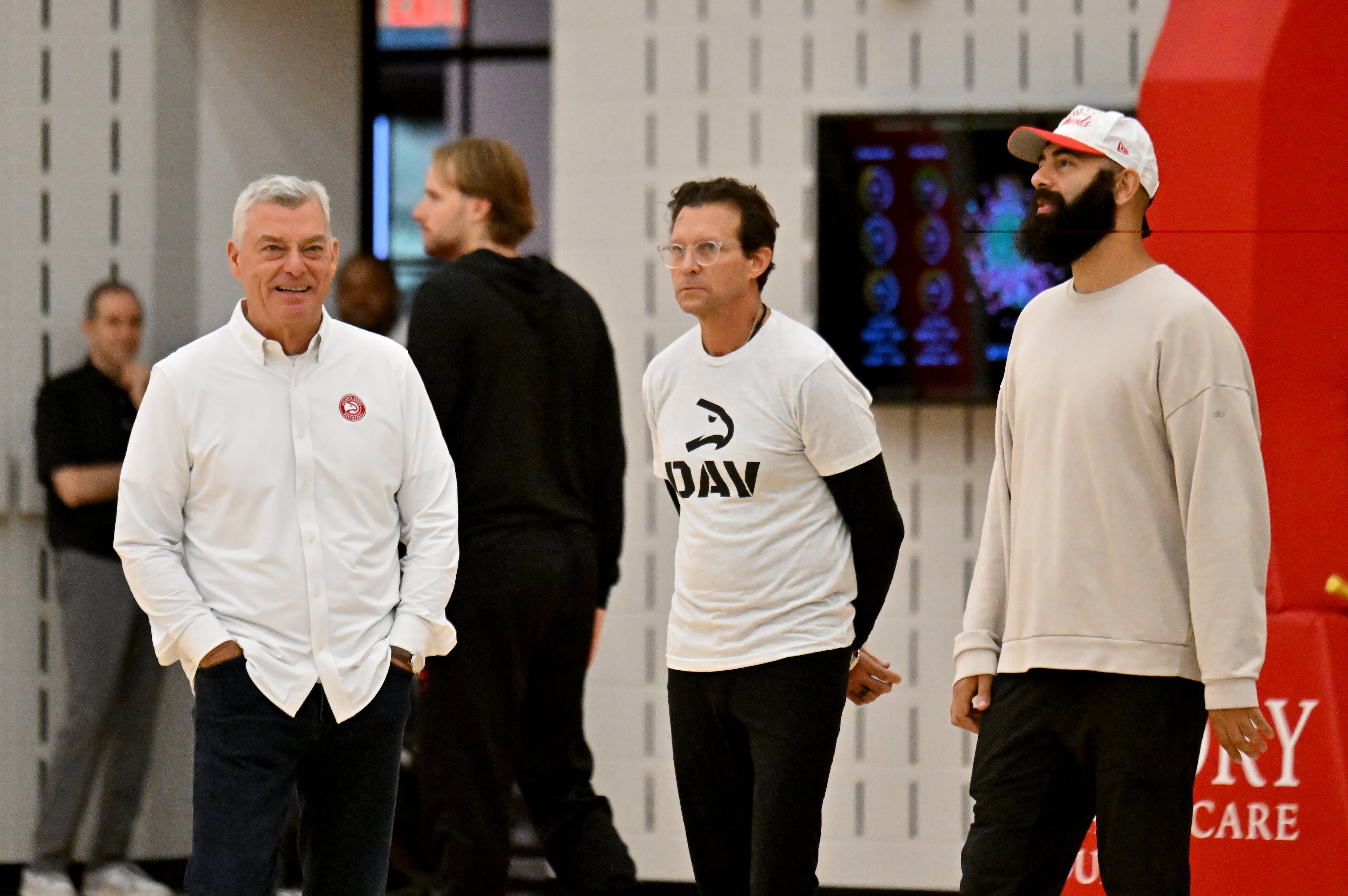Golden State is a team like no other

With 1:42 remaining in a tied Game 6 of the Western Conference finals, Oklahoma City’s Russell Westbrook rose to shoot. Golden State’s Andre Iguodala stripped the ball. Taking two dribbles, Iguodala loosed a 30-foot pass to Klay Thompson, positioned on the right wing a step inside the sideline.
The Thunder reacted as well as a team can off a live-ball turnover. Kevin Durant rushed back and, even as Iguodala’s pass was en route, hurtled toward Thompson. Listed as 6-foot-9, Durant is closer to 6-11. Thompson’s 25-footer whirled over those highly elevated hands. Game 6 was tied no more.
Five seconds earlier, one of the NBA’s finest players was maneuvering for the shot that would have put OKC ahead. Instead the Thunder trailed 104-101, having seen Thompson sail home a trey over another of the league’s finest. This was transition basketball at its most brazen — steal, two dribbles, pass, 3-point shot — and, had this been another team in transition, we’d have said, “Final two minutes of an elimination game and you take THAT?” But these were the Warriors, doing as they do.
The shot clock was at 21 seconds when Thompson cast off. He had no fear of failure because no team has ever shot 25-footers like this. (It would be Thompson’s 11th trey of the night, an NBA playoff record.) With its season on the line, Golden State was true to itself. It did not pause to ponder ramifications. To borrow from the golfer John Daly, Thompson gripped it and ripped it.
Oklahoma City outplayed Golden State on the night and over the breadth of the series. The best team in NBA regular-season history was on the brink of playoff failure — down by 13 points in the first half, down by seven with four minutes left. But after Golden State stuck its nose in front, this happened: Durant missed a forced 3-pointer; Westbrook lost the ball, then threw it away, then threw it away again; Durant lost the ball.
Five possessions entrusted to two of the sport’s best yielded four turnovers and no points. OKC was shattered. The Warriors had finally done as they do, which is: Spread you out, run you down, rain treys on your head and break your heart.
To say we've never seen such a team is true in every sense: Nobody had gone 73-9 before Golden State, and no great team has been built like Golden State. Its three best players are two guards with essentially the same skills and an undersized power forward who was a Round 2 draftee. Its least essential starter is center Andrew Bogut, benched during last season's finals. The MVP of those finals was Iguodala, usually a sub. The MVP of the past two seasons is Stephen Curry, who's the fifth-highest-paid Warrior.
There are no play-above-the-rim wings, no polished post threats. (Curry and Thompson made a higher percentage of shots within three feet than Draymond Green.) But the Warriors are 140-24 over the past two seasons and favored to claim a second consecutive title not because they’re the most talented group — if you were drafting from the Western finalists, Durant and Westbrook would be the first two picks — but because they fit.
They’ll face the Cavaliers and LeBron James again. It took Nick U’Ren’s suggestion – U’Ren is “a special assistant to the head coach,” which on many clubs would mean “go-fer” – that Iguodala start ahead of Bogut to turn last year’s finals, and that was against an opponent missing Kyrie Irving and Kevin Love. Cleveland is healthy now. Cleveland will be tough.
But without trying to go all "mystique" and "aura" on you, it's hard to imagine Golden State's happy journey ending with a silver medal. I don't know that this is the best team I've ever seen. (The 1971-72 Lakers remain my standard.) I do know that there has never been a team quite like this.



